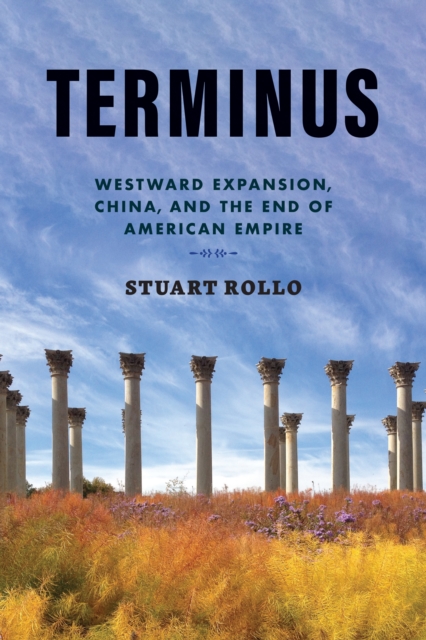Terminus: Westward Expansion, China, and the End of American Empire

Terminus: Westward Expansion, China, and the End of American Empire
A sweeping narrative of America's imperial history and its long entanglement with China.
In Terminus, Stuart Rollo examines the origins and trajectory of American empire in the Asia-Pacific region, focusing on its westward expansion and historic entanglement with China. American foreign and strategic policy in this region, Rollo argues, has always been shaped by broader economic and political concerns centered on China. China's current rise, and the economic and strategic systems that China is developing, represents the most serious challenge to the structure of American empire to date.
Rollo paints a sweeping historical narrative of American imperial history and its relationship with China from 1776 to the present. Grounded in archival research, official and personal correspondence, policy documents, declassified intelligence material, and congressional records, Terminus traces the development of American empire building from the pre-independence period to the eve of World War I, arguing that this new empire was primarily driven by commercial interests in China. Rollo explores shifts in global power, resource politics, and international economic structures that led the United States to transition from one of several imperial powers to the world's sole superpower by the last decade of the twentieth century. Finally, he examines the decline of American empire since its brief period of unipolarity in the 1990s, explaining the new pressures and challenges posed by the rise of China.
Rollo proposes three scenarios for how the United States might manage its inevitable imperial decline: a vain attempt to shore up and extend the empire, an exploitative hegemony, or a post-imperial foreign policy. This last option would work to repair the damaged fabric of American social and political life, providing a long-term, stable foundation for national security, prosperity, and the well-being of its citizens. All empires eventually end, but with the benefit of hindsight, Rollo urges us to consider how to engineer a softer landing.
PRP: 549.24 Lei
Acesta este Prețul Recomandat de Producător. Prețul de vânzare al produsului este afișat mai jos.
494.32Lei
494.32Lei
549.24 LeiLivrare in 2-4 saptamani
Descrierea produsului
A sweeping narrative of America's imperial history and its long entanglement with China.
In Terminus, Stuart Rollo examines the origins and trajectory of American empire in the Asia-Pacific region, focusing on its westward expansion and historic entanglement with China. American foreign and strategic policy in this region, Rollo argues, has always been shaped by broader economic and political concerns centered on China. China's current rise, and the economic and strategic systems that China is developing, represents the most serious challenge to the structure of American empire to date.
Rollo paints a sweeping historical narrative of American imperial history and its relationship with China from 1776 to the present. Grounded in archival research, official and personal correspondence, policy documents, declassified intelligence material, and congressional records, Terminus traces the development of American empire building from the pre-independence period to the eve of World War I, arguing that this new empire was primarily driven by commercial interests in China. Rollo explores shifts in global power, resource politics, and international economic structures that led the United States to transition from one of several imperial powers to the world's sole superpower by the last decade of the twentieth century. Finally, he examines the decline of American empire since its brief period of unipolarity in the 1990s, explaining the new pressures and challenges posed by the rise of China.
Rollo proposes three scenarios for how the United States might manage its inevitable imperial decline: a vain attempt to shore up and extend the empire, an exploitative hegemony, or a post-imperial foreign policy. This last option would work to repair the damaged fabric of American social and political life, providing a long-term, stable foundation for national security, prosperity, and the well-being of its citizens. All empires eventually end, but with the benefit of hindsight, Rollo urges us to consider how to engineer a softer landing.
Detaliile produsului











